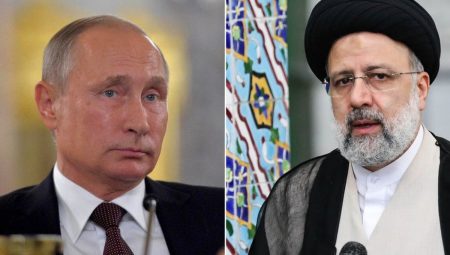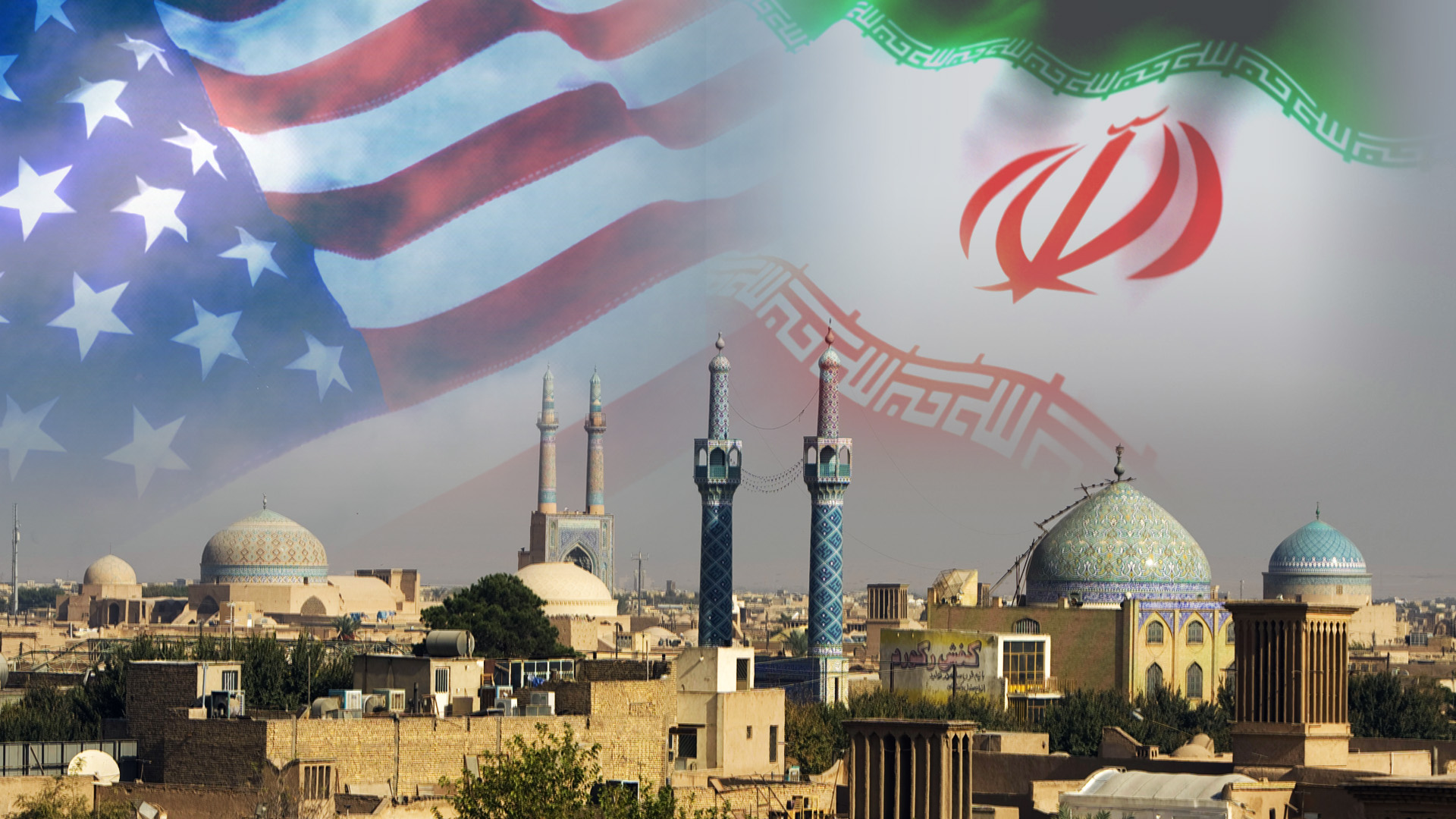The Nuclear Deal with Iran from Jewish–American Perspective
“A shlekhtersholemizbeservi a guterkrig.”
Yiddish Proverb
 In this article I am going to examine the Joint Comprehensive Plan of Action (JCPOA) with respect to the stance of American Jews. My aim is to clarify the bipolar nature of American Jews’ standpoints to the Iran Deal, by indicating the differences between attitudes of most American Jewish statesmen and of State of Israel towards the JCPOA. By evaluating the attitudes of both Pro-Israeli lobbies and American Jewish organizations towards the Nuclear Deal with Iran, I will focus on the roots of critics over it.
In this article I am going to examine the Joint Comprehensive Plan of Action (JCPOA) with respect to the stance of American Jews. My aim is to clarify the bipolar nature of American Jews’ standpoints to the Iran Deal, by indicating the differences between attitudes of most American Jewish statesmen and of State of Israel towards the JCPOA. By evaluating the attitudes of both Pro-Israeli lobbies and American Jewish organizations towards the Nuclear Deal with Iran, I will focus on the roots of critics over it.
The article consists of four parts. In the first part, I will give a brief introduction to the history of the Nuclear Program of Iran, and of the Nuclear Deal. Secondly, I will compare the standpoints of Israeli Prime Minister Benjamin Netanyahu, of pro-Israeli lobbies operating in the US, and of Jewish American statesmen towards the Agreement. Then, I will focus on a specific Jewish American Congressman, Alan Grayson’s views, upon the subject by giving references to his speeches. Lastly, I will present my own approach to the issue with regards to all ideas discussed along the article.
Energy is the capacity of a system to do work. That system may differ; it may take the form of a car, a street lamp, a kite, or a human body. All things are in need for energy to be able to work. Car uses gasoline; street lamp uses electricity; kite uses wind; and human body uses foods. They derive the energy needed to work from those. Even the Earth derives its energy from the Sun. Accordingly, it is right to say that the common thing in energy is its unique form of being transferable to other objects, or convertible into different forms.
One form of energy can be converted to another form. For instance, street lamp takes electrical energy and converts it to light; or human body converts chemical energy stored in muscles to mechanical energy in order to move. Some of the many forms that energy takes are mechanical energy, chemical energy, electrical energy, thermal energy, and nuclear energy.
Nuclear energy is the energy in the core of an atom. After the split of atoms in nuclear fissions, atoms release the energy. Then this energy can be used to create electricity for instance to power cities. What controls these fissions to produce electricity called nuclear power plants. About 15 percent of the world’s electricity is generated by nuclear power plants today (IEAE, 2015). However, nuclear power can also be used for getting nuclear weapons as well as producing electricity.
A number of countries use nuclear power today notably for power generation. However there are also other areas in which nuclear power is used such as scientific research, medicine, and military. Military, in this context is the one that attracts most attention in global arena.
When nuclear power is used for military purposes, for instance to get nuclear weapons, in the name of providing security against potential external threats, it becomes a threat for the wellbeingof the world as a whole rather than a specific country. Thus, to prevent the spread of nuclear weapons and its technology Non-Proliferation Treaty (NPT) entered into force in 1970. NPT recognized 5 states as nuclear powers: the US, Russia, the UK, France, and China. Israel, Pakistan, India, and North Korea never signed this Treaty despite the fact that they also possess nuclear weapon technology.
According to International Atomic Energy Agency’s (IAEA) report on world nuclear generation and capacity issued in 2015, the United States (US) with 99 nuclear units is the top country, in terms of number of nuclear units, out of 31 countries that have nuclear power all over the world (IEAE, 2015). The US is followed by France with 58, Japan with 43, Russia with 34, and China with 27 nuclear units. In the same report; however, Iran, the country that this paper will argue from now onward, is at the bottom with just 1 nuclear unit, along with Netherlands, Slovenia, and Armenia (IAEA, 2015).
The nuclear program of Iran actually dates back to 1950s but was slow to progress. The US supplied the Tehran Nuclear Research Center (TNRC) in 1967 (NTI, 2015). After this support coming from the US, Shah wanted to enhance the nuclear power; so, he founded Atomic Energy Organization of Iran (AEOI) in 1973. In the following years, Iran had signed a number of nuclear technology related agreements with foreign suppliers. However, after the Islamic Revolution of 1979 works on nuclear technology was interrupted because that Ayatollah Khomeini, supreme religious leader of revolutionary Iran, was opposed to nuclear technology at that time.
However, in 1984 Khomeini expressed a renewed interest in nuclear power, seeking the assistance of international partners (NTI, 2015). In the late 1980s and early 1990s Iran signed nuclear cooperation agreements with China and Pakistan. In 1995, Russia also came on board by announcing that she was going to help Iran complete the construction of Bushehr Power Plant. Russia was also in favor of constructing three additional nuclear reactors in Iran at the time.
The United States however was suspicious of Iran using its civilian program as a cover for nuclear weapons development. Thus, the US government put pressure on potential suppliers like China, Argentina, and Russia to limit nuclear cooperation with Iran (NTI, 2015). She blocked the promised nuclear cooperation agreements between Iran and China, and also between Iran and Argentina. Russia also decided, after US urge, to suspend the construction of additional reactors in Iran but she signed a nuclear cooperation agreement with Iran in 1995 to complete the uncompleted Bushehr Power Plant.
2000s can be characterized for Iran as years of sanctions by the European Union and the United Nations leading by the US. After the existence of its undeclared nuclear facilities was revealed in 2002 by National Council of Resistance of Iran (NCRI), Iran has faced a lot of sanctions. In 2003, due to the fear of referral to the UN Security Council, Iran entered into negotiations with the EU-3 (France, Germany, and the UK); agreed to cooperate with the IAEA, and suspended enrichment activities (NTI, 2015).
However, in 2005 the diplomatic progress to limit Iranian nuclear enrichment activities broke down because of that Iran decided to go on its nuclear activities. Accordingly, she rejected EU’s Long Term Agreement. As a result of Iran’s acts against continuing cooperation with the EU-3, Iran case was reported to the UN Security Council. In June, the EU-3 together with the United States, China and Russia (P5+1) offered to provide Tehran with advanced civilian nuclear technology if Iran suspended enrichment activities and resumed implementation of the Additional Protocol (NTI, 2015). However, Tehran ignored this call. In 2008 and 2009, there were two other attempts to negotiate with Iran on the subject but both were rejected again by Iran.
After every failed attempt to negotiate, sanctions by the UN Security Council had been increased. In 2012, the US President Obama also signed a law expanding sanctions against Iran. In 2013, sanctions against Iran were followed by additional executive orders in the US, which left Iran in a tight spot.
After Hassan Rouhani’s victory in 2013 Iranian Presidential Elections, which replaced Mahmoud Ahmadinejad, Iran’s attitude towards the nuclear negotiations has significantly changed. They began to talks with P5+1 again, and finally in 2013 they had reached an agreement on Joint Plan of Action (JPOA). On 15 July, 2015 the P5+1 States and Iran signed the Joint Comprehensive Plan of Action (JCPOA).
The Nuclear Deal: Vitriolic Divide among American Jews
The Joint Comprehensive Plan of Action (JCPOA) has divided Jewish American Community into two opposing groups: supporters and opponents. Supporters’ main claim is that the deal came as a result of long years of negotiations between Iran and World Powers so it is a good step to secure the region. However, opponents of the Deal deny the supporters’ claim that the Iran Deal will secure the region, advocating that the Deal just delaying Tehran’s nuclear aims rather than annihilating it.
Main opposition to the Iran Deal as known is State of Israel. The current Prime Minister of Israel, Benjamin Netanyahu, believes the uselessness of the Deal saying that “The nuclear deal with Iran does not block Iran’s path to the bomb, it paves Iran’s path to the bomb.” (2015). According to Netanyahu, JCPOA serves not to prevent Iran from getting nuclear power but to legalize the process of getting it.
Netanyahu claims that JCPOA threatens the West as a whole, as it gives Iran a “massive infusion of cash” (2015). From this statement, it is understood that Netanyahu mainly opposes to the lifting of sanctions against Iran because he fears that Iran’s economic advance will turn into extensive Iran-effect in the region.
Although the second article under the headline of “Preamble and General Provisions” stating that “The full implementation of this JCPOA will ensure the exclusively peaceful nature of Iran’snuclear programme.” (2015), Netanyahu voices that “I don’t oppose this deal because I want war. I oppose this deal because I want to prevent war, and this deal will bring war.” (2015).
When it comes to the “Netanyahu-effect” on American Politics, pro-Israeli lobbies operating in the US draw the attention. The American Israel Public Affairs Committee (AIPAC) is the most influential one within the pro-Israel lobbies in the US. AIPAC’s position in the JCPOA is on the opposition side. AIPAC’s statements on the issue are almost the same with Netanyahu’s speeches. It also sees Iran as “world’s leading state sponsor of terror” (2015) like Netanyahu. One of the main principles that the AIPAC was founded upon is, as it stated, to ensure the security of Israel in the region in cooperation with the US. It is not surprising for a foundation which was built upon the notion of security to approach also the Nuclear Deal with suspicion.
The other influential pro-Israeli organization in the US is American Jewish Committee (AJC). AJC also opposed to the JCOPA stating that “The alternative to a bad deal is no deal.” (2015). AJC holds the same beliefs with Netanyahu upon the subject of sanctions. With lifting of sanctions, they believe Iran is going to advance in economic manner and this advancement will help her become the leading country in the region again. They see Iran’s leadership in the region dangerous because of Iranian Supreme Leader’s saying on State of Israel.
The AJC advocates the need for maintaining “the closest possible links with America’s long-time allies in the region, including Israel, Egypt, Jordan, and the members of the Gulf Cooperation Council.”(2015). It also called for “No-votes” to the Iran Deal on Members of Congress just like Netanyahu and AIPAC. Actually as a pro-Israel organization it did what Israel demanded.
On the other hand there are also Jewish American organizations which stand with Obama’s decision on the nuclear deal with Iran. According to news on Times of Israel, less than 10 percent of top US Jewish groups back the Iran Deal (2015). The most influential one among those who support the JCPOA is National Jewish Democratic Council (NJDC). In its statement regarding the Iran Deal, it is written that “This was a deal aimed at halting Iran’s march towards a nuclear weapon, and we find it will do exactly that.” (2015). NJDC supported the deal with the claim that “…the deal accomplishes the core goals of negotiations and will ultimately lead to a safer and more secure region.” (2015).
American Jewish Zionist Organization, AMENIU, takes place within the supporters of the Nuclear Deal. AMENIU stated that “340 rabbis from all streams of Judaism sent a letter to all Members of Congress urging that they support the agreement between the international community and Iran on the Iranian nuclear program.” (2015). This statement is important because it shows the Zionist interpretation of the JCPOA from Democrats’ perspective.
According to news on Jerusalem Post, “two thirds of Congress’ Jewish lawmakers backed the Iran nuclear deal.” (2015). The idea behind the support decision of Jewish lawmakers were that they see reaching an agreement as a peacemaker in the region. They chose to make a deal instead of no deal. Alan Grayson, his views is presented specifically in next pages, announced lawmakers’ backing of deal and signed off with the well-known Yiddish proverb: “A bad peace is better than a good war.” (2015).
As it is put on previous pages, the JCPOA had created bipolar nature for Jewish Americans acting in the US Politics. This bipolarity maybe good for the working of democracy; however, it also restricts the scope of movement of Jewish American organizations. Fundamentally the reason why those organizations are in the US politics is to protect Jewish rights and to enhance good cooperation between the US and Israel. Thus, polarization in this subject has negative effects on both sides from Zionist perspective.
Congressman Alan Grayson’s Views on JCPOA
Alan M. Grayson, the United States Representative for Florida’s 9th congressional district and a member of the Democratic Party, strongly supports the JCPOA. His main argument behind his support lies in this question he asked: “Is it more dangerous to have an agreement, or to have no agreement?” (2015). This is the same point he indicated when he announced Congress’ 19 of 28 Jewish lawmakers support to the Nuclear Deal. He advocates the need for an agreement between Iran and World Powers to found a basis for upcoming negotiations.
Grayson is a member of the House Foreign Committee. He is also strongly advocates the need for economic sanctions against Tehran as a tool to prevent it from getting nuclear power or posing threat to the region. He passed amendments to the ‘Nuclear Iran Prevention Act of 2013’ (H.R. 850) more than any other member (2015). His amendments were generally to strengthen sanction efforts of the US.
It is important to notice that being strong advocate of sanctions against Iran did not lead Alan Grayson to push back his support from the JCPOA. Although he stated his concerns over the Iran Deal, he kept supporting because he saw it as the best option that they had.
His concerns consist of three parts as he told. First one is that “the lifting of economic sanctions will not stop Iran from continuing to be a sponsor of global terrorism.” (2015). On the contrary, it is going to help Iran by providing with better economic conditions with a possible increase in its oil revenue after lifting of sanctions. His second concern is that “Iran will continue its missile program” (2015). And lastly he concerned about that” this is just a pause in Iran’s nuclear weapons program, and not an end to it.” (2015). This last concern is understandable when looked at the history of Iran’s Nuclear Program. Iran always acted differently what she told to the other states in its nuclear enrichment program.
My Own Opinion on the JCPOA
I am a strong supporter of JCPOA. I believe that the Nuclear Deal between Iran and P5+1 will come with an extensive progress in transparency of Tehran’s nuclear facilities. I don’t mind any conspiracy theories Netanyahu draw attention over like that the Deal will ensure war in the region. I think that everyone should be aware of the importance of this deal and act accordingly.
The view that Iran is a supporter of global terrorism is mainly voiced by Zionist enterprises rather than objective organizations. All pro-Israel lobbies that stand with Netanyahu use the same argument to justify their stance towards the JCPOA.
I think we should examine or study the views of Jewish Diaspora rather than State of Israel to really understand the Jews’ attitude towards the nuclear deal with Iran. Because I believe that Israel does not represent all Jews but “difference-blind” nationalistic ones. Israel’s statements on the Iran Deal consists all the time same arguments: Iran is going to have nuclear power and destroy us; Iran would not end its nuclear facilities even though she signed the Deal; Iran, Iran, Iran…
In my opinion, what lies behind Israel’s those arguments related to Iran is not a real threat or the possibility that Iran might act in aggression but the fear of the fact that after the sanctions lifted Iran’s economy would change balances in the whole region. So I believe that Israel’s Iran antipathy is much more related to economic concerns rather than ideological controversies.
References
- Joint Comprehensive Plan of Action, U.S. Department of State (2015) Retrieved from http://www.state.gov/e/eb/tfs/spi/iran/jcpoa/
- Parameters for a Joint Comprehensive Plan of Action regarding the Islamic Republic of Iran’s Nuclear Program (2015) retrieved from https://www.whitehouse.gov/sites/default/files/docs/parametersforajointcomprehenisveplanofaction.pdf
- Iran Deal Opens a Vitriolic Divide Among American Jews, NY Times (2015) retrieved from http://www.nytimes.com/2015/08/29/us/politics/iran-deal-opens-a-vitriolic-divide-among-american-jews.html?_r=1
- 340 Rabbis Urge Congress to Support Nuclear Deal with Iran, AMEINU (2015) retrieved from http://www.ameinu.net/newsroom/press-release/340-rabbis-urge-congress-to-support-nuclear-deal-with-iran/
- American Jewish Committee announces its opposition to Iran nuclear deal, BBC (2015) retrieved from http://www.jpost.com/Breaking-News/American-Jewish-Committee-announces-its-opposition-to-Iran-nuclear-deal-411228
- Iran Country Profile, AIPAC (2015) retrieved from http://www.aipac.org/learn/issues/issue-display?issueid=%7B1A989C8D-72FF-41B7-9A4B-02067A73CAD3%7D
- The voting math behind the Iran nuclear deal in Congress, Constitution Daily (2015) retrieved from http://blog.constitutioncenter.org/2015/09/the-voting-math-behind-the-iran-nuclear-deal-in-congress/
- Rep. Alan Grayson Raises Concerns About Iran Nuclear Deal, Press Releases of the House, (2015) retrieved from http://grayson.house.gov/index.php/newsroom/press-releases/366-rep-alan-grayson-raises-concerns-about-iran-nuclear-deal
- 19 of 28 US Jewish lawmakers back the Iran nuclear deal, Jerusalem Post (2015) retrieved from http://www.jpost.com/Middle-East/Iran/19-of-28-US-Jewish-lawmakers-back-the-Iran-nuclear-deal-415804
- Country Profiles Iran – Nuclear Deal, NTI (2015) retrieved from http://www.nti.org/country-profiles/iran/nuclear/
- Prime Minister Benjamin Netanyahu On Iran, CoP (2015) retrieved from http://www.conferenceofpresidents.org/content/benjamin-netanyahu-on-iran
- Grayson Strengthens Iran Sanctions Effort, Press Releases of the House (2013) retrieved from http://grayson.house.gov/index.php/newsroom/press-releases-archive/67-grayson-strengthens-iran-sanctions-effort
- Nuclear Energy, National Geographic (2015) retrieved from http://education.nationalgeographic.org/encyclopedia/nuclear-energy/
- Netanyahu: Iran Nuclear Deal will ensure horrific war in Middle East, BREITBART (2015) retrieved from http://www.breitbart.com/national-security/2015/08/04/netanyahu-iran-nuclear-deal-will-ensure-horrific-war-in-middle-east/
Alkın Saygı/boğaziçi Üniversitesi uluslararası ilişkiler bölümü




